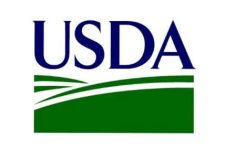The U.S. Department of Agriculture’s National Agricultural Statistics Service (NASS) in cooperation with the Animal and Plant Health Inspection Service (APHIS) is surveying U.S. crop producers to measure the impact feral swine have on their crops and livestock.
“We will collect data about feral swine to estimate the extent of damage these animals may have caused to agriculture in 11 states,” says NASS Census and Survey Division Director Barbara Rater. “We thank producers in advance for their attention to this survey. The responses, which are always anonymous, can help inform policy and management actions about feral swine.”
“We believe feral swine are a significant concern for farmers in many states,” said Dr. Stephanie A. Shwiff, project leader of the APHIS’ Economic Research of Human Wildlife Conflict project. “With this survey, we begin the process of quantifying the extent of the problem, which should help us determine the best solution.”
Feral swine are an invasive species that eat and destroy many field crops, such as corn, milo (sorghum), and rice. They also prey upon young livestock and other small animals. Feral swine are known to carry numerous diseases that are transferrable to livestock, humans, pets, and wildlife. This survey marks the first time USDA is surveying producers to determine the extent of feral swine damage.
Almost 10,000 farmers across 11 states (Alabama, Arkansas, California, Florida, Georgia, Louisiana, Mississippi, Missouri, North Carolina, South Carolina and Texas) will hear from NASS’ interviewers. The survey asks crop producers if they’ve noticed feral swine around their crops and livestock and if any of the crop damage or livestock losses are attributed to feral swine. Several questions also focus on control methods producers use to address their feral swine problems. This is the first step towards gaining a better understanding of the extent of feral swine damage, which will allow USDA agencies to devise efforts to combat this problem. Future efforts will focus specifically on livestock producers and their problems with feral swine.
NASS maintains confidentiality of all survey responses as required by Federal law (Title 7, U.S. Code, Section 2276 and the Confidential Information Protection and Statistical Efficiency Act). The agency safeguards the privacy of all respondents, ensuring that no individual operation or producer can be identified, even to cooperating internal agencies.
APHIS is a multi-faceted Agency with a broad mission area that includes protecting and promoting U.S. agricultural health, and carrying out wildlife damage management activities, among other goals. In 2014, Congress provided funding for the agency to establish the National Feral Swine Damage Management Program whose mission is to lead a national collaborative effort among Federal, State, Tribal and local entities to reduce damage caused by feral swine.
Contact: Alex Minchenkov

